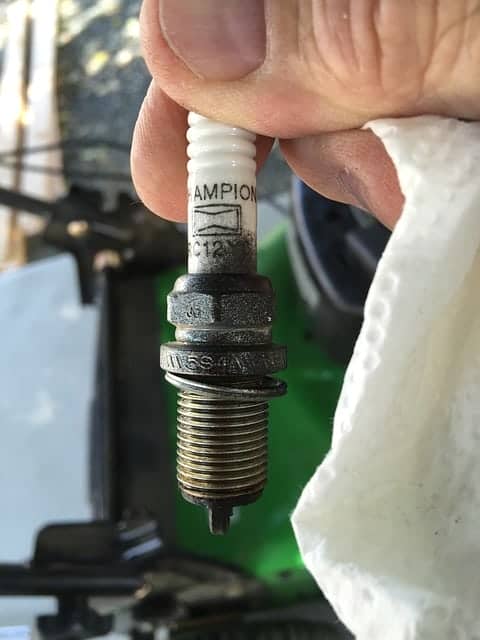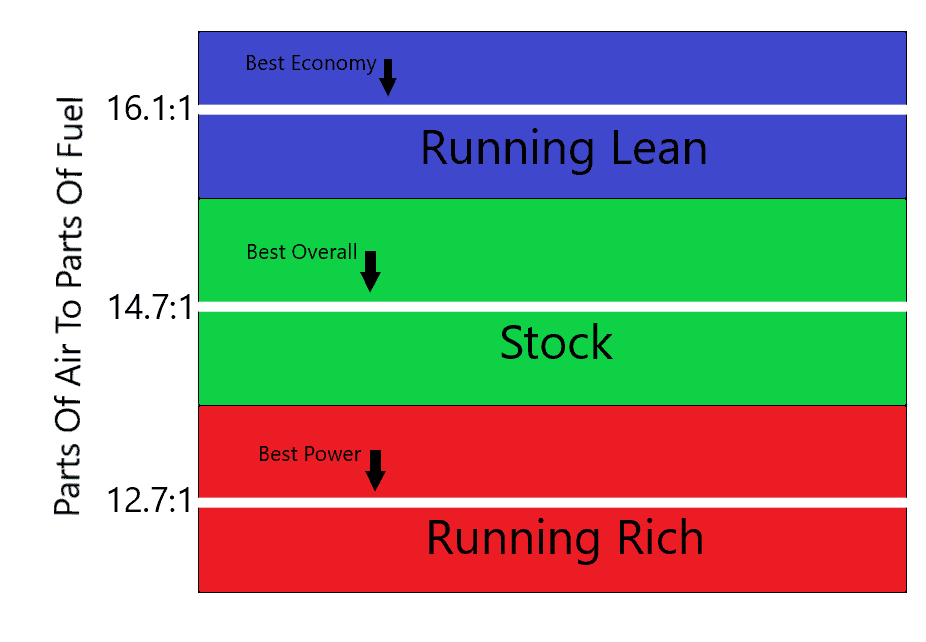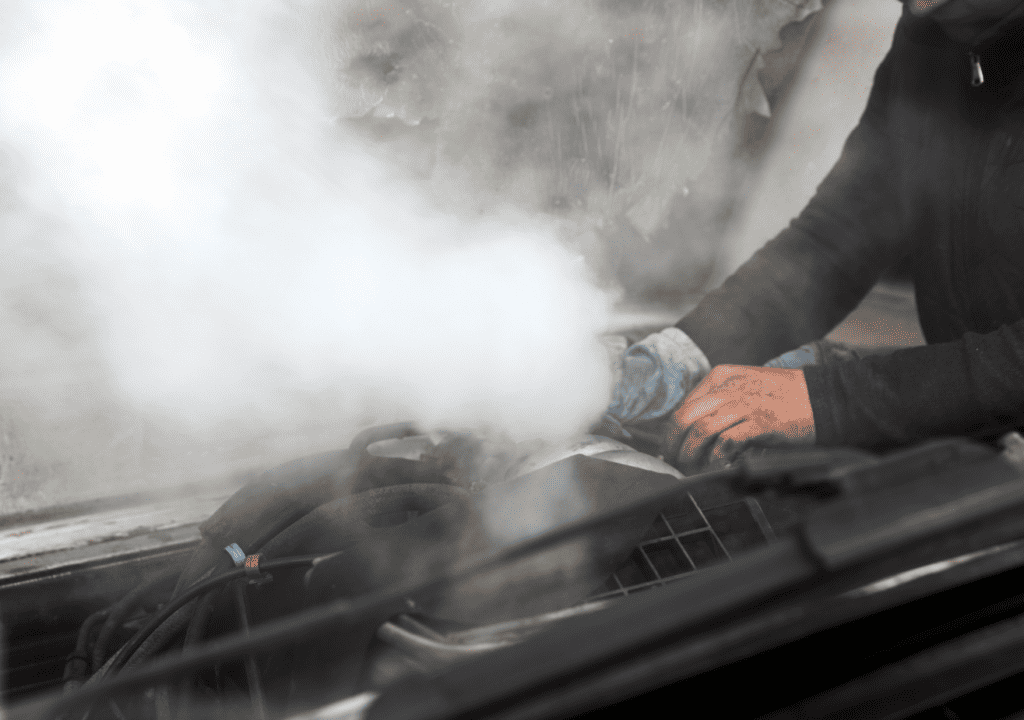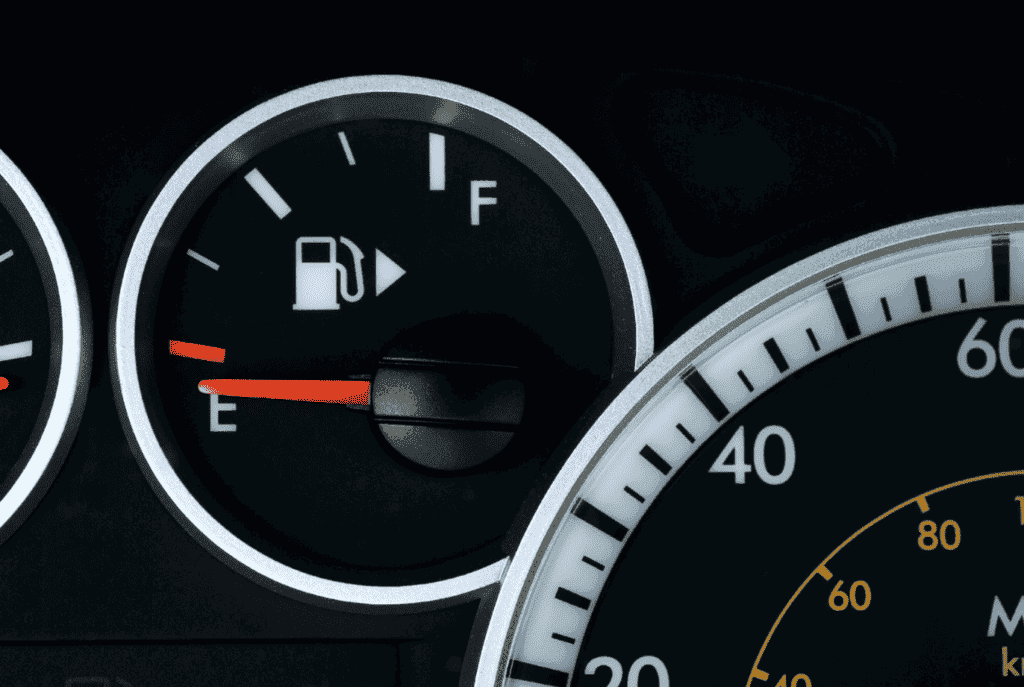
There’s a lot that goes into engines running correctly. An engine’s health is directly affected by efficiency and fuel consumption. Many components are involved in fuel delivery and consumption, and not every engine is the same.
Some are carbureted, while others are fuel injected, and each system has different failure points. The key to an engine running efficiently is not having too much or too little fuel, or in other words, the engine should not run too rich or too lean.
But what is the difference between an engine running rich or an engine running lean? The expression running rich or lean is in reference to the amount of gas that you have in the engine. If there is too much gas, then you will be running rich, and if there isn’t enough gas, then you are running lean. Either situation can cause damage to the engine if not fixed quickly.
There are a lot of reasons why an engine doesn’t run properly, and every situation is going to be different. It’s important that as you diagnose drivability issues, you understand the type of fueling system that you have. Whenever you are unsure of the source of a fueling problem, it’s always recommended to seek professional help.
Running Lean vs. Running Rich
When diagnosing an engine, whether it’s a car or a motorcycle, there are a lot of technical terms that are used, and being an inexperienced or novice at-home wrencher, it can all be overwhelming, but don’t get discouraged. Everybody starts somewhere. Today we will look at the differences between running rich and running lean, and how you might be able to spot these problems in your own project.
Like I mentioned early, the term rich and lean are referencing the amount of fuel that the engine is consuming. On cars and newer motorcycles, there might be sensors that light up to describe a particular engine problem to be the fault of running too lean or too rich.
When an engine is running rich, it means that there is too much fuel compared to the amount of air that is in the engine, and running lean is the exact opposite. But what are these numbers based on? Too much fuel compared to what?
Engine combustion relies on what is known as the stochiometric ratio. This means that for perfect combustion there should be 14.7 parts air to 1 part fuel. What that means is in order for the engine to make power, there needs to be a particular ratio to air and fuel. Engines nowadays have a lot of different ways to measure the amount of fuel and air that are in a specific combustion cycle, but it hasn’t always been easily measured. See the below illustration to better understand the ratios.

I’m sure that some of you out there have motorcycles that have a carbureted fuel system. It was the industry standard for motorcycles and some cars up until the last couple of decades. Now we see fuel injection systems that rely on injectors and fuel pumps.
With carburetors, the air-fuel ratio was made inside of the carburetor before it went into the cylinder. This was great because it gave a really well mixed solution to the engine for combustion, but overall the system was very inefficient. It had no way of directly measuring the air and fuel that was put into the engine.
If you wanted to change the ratio, you would have had to change what are called petcock valves. As simple of a system a carburetor is, they have a tendency to struggle in keeping a nice even air-fuel ratio.
With more advanced injection systems, motorcycles and cars are now able to measure exactly the amount of fuel and air that is put into the engine, as well as analyze the post combustion vapor, or exhaust. These systems are able to vary the amount of fuel injected according to the amount of air that is sent through the intake. These newer systems have allowed for both motorcycles and cars to become more efficient as well as more powerful.
Looking at the stochiometric ratio again, if there is too much air in the cylinder, meaning the parts of air compared to the parts of fuel is higher, your engine is running lean. If your engine has a ratio where there is more than 1-part fuel per 14.7 parts of air, your engine is running rich. Each scenario will cause different problems, and neither situation is preferable.
The Motorcycle Habit team has created a video series about restoring motorcycles from start to finish and within this series includes a detailed 25 minute video on how to clean and rebuild carburetors. This series also includes other hard-to-tackle components such as body work and electrical. I give dozens of tips and tricks that you won’t find anywhere else online. Click here for more information if you’re interested in viewing multiple videos that will help fix up your bike or if you’re interested in completely building your dream motorcycle!
Symptoms Of Running Lean

When an engine is running lean, that means that there is too much air that is being brought into the cylinders. When an engine is combusting with not enough fuel, your engine will start to produce more heat than it should compared to normal operation.
Believe it or not, having the right amount of fuel will not only optimize your engine, but it also has cooling effects during operation. As the fuel is brought into the cylinder, it coats the walls of the cylinders prior to combusting. This allows the fuel to absorb some of the heat and then escape out of the exhaust. So if your motorcycle or car is having overheating issues, maybe noticeable in the exhaust, you might have a lean condition.
Fixes for this are going to be very specific to the vehicle you have, but it’s always a good place to start by looking at the intake system. Is there somewhere that too much air is being brought in? Maybe a cracked hose?
Another place to troubleshoot would be the fuel pump. Is there corrosion in the wiring? Is the fuel pump even functional? Is the sender unit clogged by dirt or debris? Diagnosing is the hardest part of repairing an engine. Be patient, no need to rush a repair just because you are getting frustrated.
There can be a lot to an engine running lean. In fact, we have a whole article written to directly address issues of running lean which can be found by clicking here. The article is motorcycle specific but the principles can be applied to any engine you may be working on.
Symptoms Of Running Rich

An engine that’s running rich might be a little bit easier to spot than one running lean. Running rich is when there is more fuel than is needed for good combustion. This can lead to serious issues if not fixed.
One of the ways that you can tell your engine is running rich is by noticing your fuel economy has gone down. This can be harder to notice on a motorcycle than a car, but if it’s running rich it will be consuming more fuel than normal and in extreme conditions you might notice your economy drop quickly.
Another way to notice that your engine is running rich is that you can smell the extra fuel that is going into the engine. If there’s enough extra fuel sent to combustion, not all of it will ignite and will either go out the exhaust or remain in the chamber.
This can cause the rider to easily notice a strong fuel odor coming from the engine area. Also, another way to tell it’s running rich is the appearance of dark exhaust coming out of the tail pipes. The more rich the engine runs, the darker the smoke is coming out the back.
If you remove any of the spark plugs, you may notice the ends are darker and almost dirtier looking. This is an indication that your engine is running rich.
Fixing a rich condition might be difficult, but it’s appropriate to start by checking the intake filter. Perhaps it’s clogged and the amount of air that is being brought into the engine is being compromised. Also check the injectors. Are any of them leaking or damaged? Maybe one is stuck open and flooding a cylinder.
Can Running Rich Or Lean Damage The Engine?
If you run a motorcycle, a car, or any engine outside of the stochiometric ratio for too long, damage will occur. Maybe your spark plugs will wear prematurely, or maybe the extra heat in the engine will warp a head gasket or damage an exhaust.
It’s important to keep an eye on your engine’s operation so that when something goes wrong, you’ll be able to catch it before it causes lasting damage. Your engine’s fuel mixture will never perfectly sit at 14.7:1, but by making sure the carbs are adjusted and the fuel pump is functioning, you will be able to keep your vehicle healthy and strong for many years and many miles to come.

